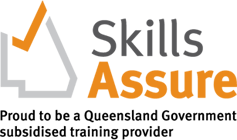So, you’ve exhibited unfaltering dedication to your academic accomplishments and are now ready to apply your newfound competencies to the workforce.
Now, you face the next challenge: building a disability support worker resume that attracts an employer’s attention.
At Sage Education, we believe that the job-relevant skills you’ve worked hard for should be clearly reflected in an effective resume.
Thus, in today’s guide, we shall go over the essential qualities and components of a disability support worker resume.
By the time you’ve finished reading this article, you will be able to create an exceptional disability support worker resume that will capture the attention of the top employers in the industry!
What Skills Should A Disability Support Worker Have?
In order to secure the disability support worker position of your dreams, you know that there are a range of skills required to provide outstanding personal care.
From hard skills to soft skills, you should aim to fill your resume’s skills section with a vast array of competencies that reflect your technical training, as well as your work ethic and personality.
However, it’s not just your resume that should exhibit your expertise, but also your cover letter. A lot of individuals neglect the significance of cover letters. Given that a cover letter is your first chance to capture a hiring manager’s attention, you shouldn’t disregard the opportunity to, quite frankly, show off.
And here’s how you should do it!
Hard Skills
Hard skills refer to the technical knowledge and competencies needed to be, in this instance, a proficient disability support worker.
Listed below, we have assembled a list of the top skills that disability support workers should demonstrate, not only when seeking to impress hiring managers but also when developing individualized care plans.
- A knowledge of body systems.
- An understanding of common physical health conditions.
- A recognition of common mental health issues and cognitive problems.
- A knowledge of assisting clients with personal hygiene.
- A knowledge of nutritious food preparation.
- An ability to administer medication.
- A knowledge of operating mobility devices.
- An ability to organize and prepare proper documentation.
- An ability to provide professional emotional support.
- An ability to foster independent living skills.
- An ability to apply first aid.
Soft Skills
Soft skills are as important as technical knowledge when it comes to high-quality care and, of course, attracting potential employers.
Simply put, soft skills relate more to your personal qualities, such as your motivations, insights, personality, and emotions.
Here, we have arranged a list of the most valued interpersonal skills so that you know how to bolster your professional background!
- Empathy.
- Patience.
- Observation.
- Positivity.
- Friendliness.
- Time management/organisation.
- Cooperation.
- Communication.
- Conflict resolution.
By combining and exhibiting both skill sets, you will demonstrate that you are qualified to care for individuals with mental/physical disabilities. What’s more, you will show hiring managers that you know what the role will demand of you and are eager to fulfil your duties.
How To Write The Perfect Cover Letter
The approach you should take when constructing your cover letter will largely depend on your employer and the specific requirements of your role. However, there are a few general steps you should take to show that you are the perfect candidate for the job description.
Contact Details
Starting your cover letter with your contact details is essential – needless to say, without your contact details, the hiring manager won’t be able to invite you to an interview.
You should include your full name, mobile number, professional email address, where you live, and the date you wrote the letter.
A Captivating But Appropriate Introduction
Your introduction is crucial to establishing an affable first impression. You should include the name of the hiring workplace, followed by an appropriate greeting that addresses the hiring manager.
Tip: if you know or can find out the hiring manager’s name, using it in your introduction can add a personal touch that shows your eagerness to impress.
A Demonstration of Your Suitability For the Role
You must express your motivations for seeking out that specific position. In doing this, you will emphasize your genuine interest in finding a disability support worker job.
To effectively illustrate the reasoning behind your motivations, you should mention what drew you to community services. This is the perfect time to show how your career goals and values align with those of the hiring manager.
Additionally, the main body of your cover letter is ideal for delving deeper into the employable attributes that you will address in your resume. For instance, you can link your skills and experience to the job vacancy, showcasing how your competencies make you the ideal candidate for the role.
A Grateful Conclusion
Before formally concluding your cover letter, you should express your gratitude to the hiring manager for their time and consideration.
This is a good way to maintain the positive impression that you’ve established in your introduction.
Tips For Creating an Impactful Cover Letter
– Keep your letter’s content concise and straightforward.
– Avoid generic references to your capabilities.
– Investigate the job listing.
– Use active voice.
– Consult other professionals within your industry.
– Review your letter before submission.
The Ideal Structure of Your Disability Support Worker Resume
Deciding how to format your disability support worker resume can be difficult. If you’ve investigated the qualities of a professional resume, you may have noticed the resume format seems to adhere to a reverse chronological order.
Essentially, by using a reverse chronological order format, you’re listing your experience by starting with your most recent role/current employment.
Your resume’s structure should look like this:
- Your contact details (which we discussed in the previous section).
- Your personal statement/introduction.
- Your work history.
- Your skills are listed using bullet points.
- Your academic accomplishments are placed into a concise education section.
- Additional sections, such as hobbies and interests.
Tips For Your Personal Statement
Also known as a professional summary, this section aims to emphasise and summarise your competencies, personal qualities, and background. Here are a few tips to optimize your personal statement:
– Keep your statement brief and engaging.
– Write your statement in the third person to directly focus on what you can offer as a team player.
– Incorporate a lexicon that is relevant to your potential job title, such as ‘support’, ‘community participation’, and ‘assisted clients’.
– Incorporate adjectives with positive connotations.
– Highlight any specialities within your previous roles, such as caring for supporting people with of a specific age group.
Tips For Your Experience Section
A hiring manager will favour a candidate who can jump into the role without copious amounts of training. Especially within a sector that supports and enhances the lives of disabled individuals, your experience will show that you know how to handle the most difficult challenges within the field.
For every job title you’ve had, you must include the following:
– Your start and end date.
– Your employer and location.
– Your main duties.
– You must also remember not to be too repetitive regarding the duties of your previous roles.
Tips For Your Skills Section
The duties of a disability support worker require nothing short of a vast skill set. Your skill section must reflect a combination of the soft/hard skills that we discussed earlier, but there are also some desirable attributes that you could bring to your hiring manager’s attention.
For your skills section, you should include:
– You should include essential hard skills that demonstrate your technical knowledge.
– You should include soft skills that portray how you, as an individual, would be an asset to the team.
– You should mention desirable attributes like the ability to drive or physical fitness.
Tips For Your Education Section
Experience and education go hand-in-hand, portraying you as a highly-trained individual whose employable qualities stem from academic prowess and contextualised expertise.
Here’s what you should include in your education section:
– The school, college, university or training institution you graduated from.
– The year you received your qualifications.
– The qualification level.
Overall, you should remember to keep your resume concise while ensuring the content you implement in your resume highlights your specialties and showcases your personal qualities effectively. Most importantly, your CV should be tailored to the type of support that your role demands.
Where You Should Study to Acquire the Necessary Qualifications
Sage Education is one of Australia’s top providers of nationally recognised VET courses in child care, aged care, disability, and community services sectors.
When you study with Sage Education, you will access an abundance of specialised competencies and practical training.
You will also reap the benefits of our connections to the top employers in the healthcare industry!
Thus, when you specialise in disability support with Sage Education, you will experience a first-rate educative journey that an employer is sure to be impressed by!
Enrol with Sage Education
Now that you know what will make your disability support worker resume appealing, it’s time to work on its education section.
At Sage Education, we offer three transformative courses that will guide you from the moment you start as a beginner all the way through to your graduation year as an expert.
Choose between the following:
– Our Certificate III in Individual Support (Ageing or Disability) course.
– Our Certificate IV in Disability course.
– Our Diploma of Community Services course.
All you need to do to start a rewarding career in the well-paid industry of disability support is peruse our esteemed courses and get in touch!



